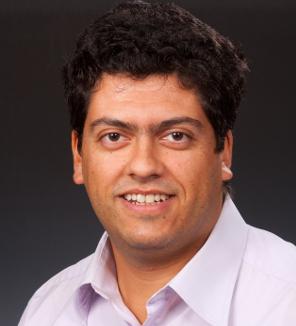A team of ECE faculty members led by Associate Professor Dario Pompili (PI) has received a new NSF award for the project titled "Real-Time Autonomic Decision Making on Sparsity-Aware Accelerated Hardware via Online Machine Learning and Approximation.” This three-year $1.4M project includes Associate Professor Saman Zonouz and Assistant Professor Bo Yuan as co-PIs.
The team will study real-time smart and autonomic decision making that involves two major stages - sensing (of sensor data and then transformation into actionable knowledge) and planning (taking decisions using this knowledge). These two stages happen in both internal and external operations of an Intelligent Physical System (IPS). In case of internal operations, sensing refers to reading data from on-board sensors and planning refers to smart execution of the firmware running on the IPS. In case of external operations, sensing refers to sensing data from externally-mounted sensors and planning refers to executing the software that constitutes an application. In the sensing stage, an IPS should be able to cope with different forms of uncertainty, especially data and model uncertainties. The goal of this research project is to achieve the objectives of online autonomic decision making on sparsity-aware accelerated hardware via Real-Time Machine Learning (RTML) and approximation for a group of IPSs such as drones performing data collection and/or multi-object tracking/classification and operating in a highly dynamic environment that is difficult to model. Remarkably, the techniques adopted in this project generalize well as they can be applied to a variety of IPS domains including natural calamities, man-made disasters, and terrorist attacks. The drone-based distributed multi-object tracking/classification will enable stakeholders such as citizens, government bodies, rescue agencies, and industries to comprehend the extent of damage, and to develop more effective mitigation policies. The research will also train students including minority and underrepresented students in the field.
You can find more details on the project at the NSF page here.
Congratulations to Dario, Saman, and Bo!

